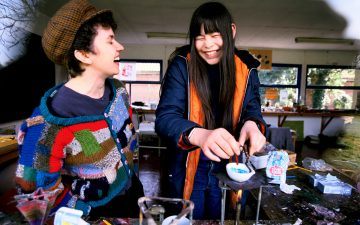 James Brooke-Smith in Aeon:
James Brooke-Smith in Aeon:
Jean-Jacques Rousseau’s Émile; or On Education (1762) is perhaps the most influential work on education written in the modern world. Rousseau’s advocacy of learning via direct experience and creative play inspired the Swiss educational reformer Johann Pestalozzi, the German educator Friedrich Fröbel and the kindergarten movement. His stress on the training of the body as well as the mind was the forerunner of the mania for organised sports that swept English boarding schools in the 19th century and inspired Baron Pierre de Coubertin to found the modern Olympic Games in 1896. His observation that children develop via a series of clearly demarcated stages, each with its own unique cognitive and emotional capacities, underpinned the Swiss psychologist Jean Piaget’s theories of child psychology in the 1920s. And his insistence on the value of learning in nature lies in the background of today’s Forest School movement.
And yet Rousseau referred to his text as ‘less an educational treatise than a visionary’s reveries about education’. Émile is a thought experiment, in which the philosopher imagines a system of education designed to protect the natural unity of his pupil’s consciousness from the ills of civilisation. Rousseau was renowned for being optimistic about human nature. In the primeval forests of our species’ infancy, mankind was solitary, happy and good – a zen-like noble savage who lived entirely for himself and in the present moment. It was only over time, Rousseau argued, as social bonds were extended and civilisation grew more complex, that this original unity was disturbed.
More here.
